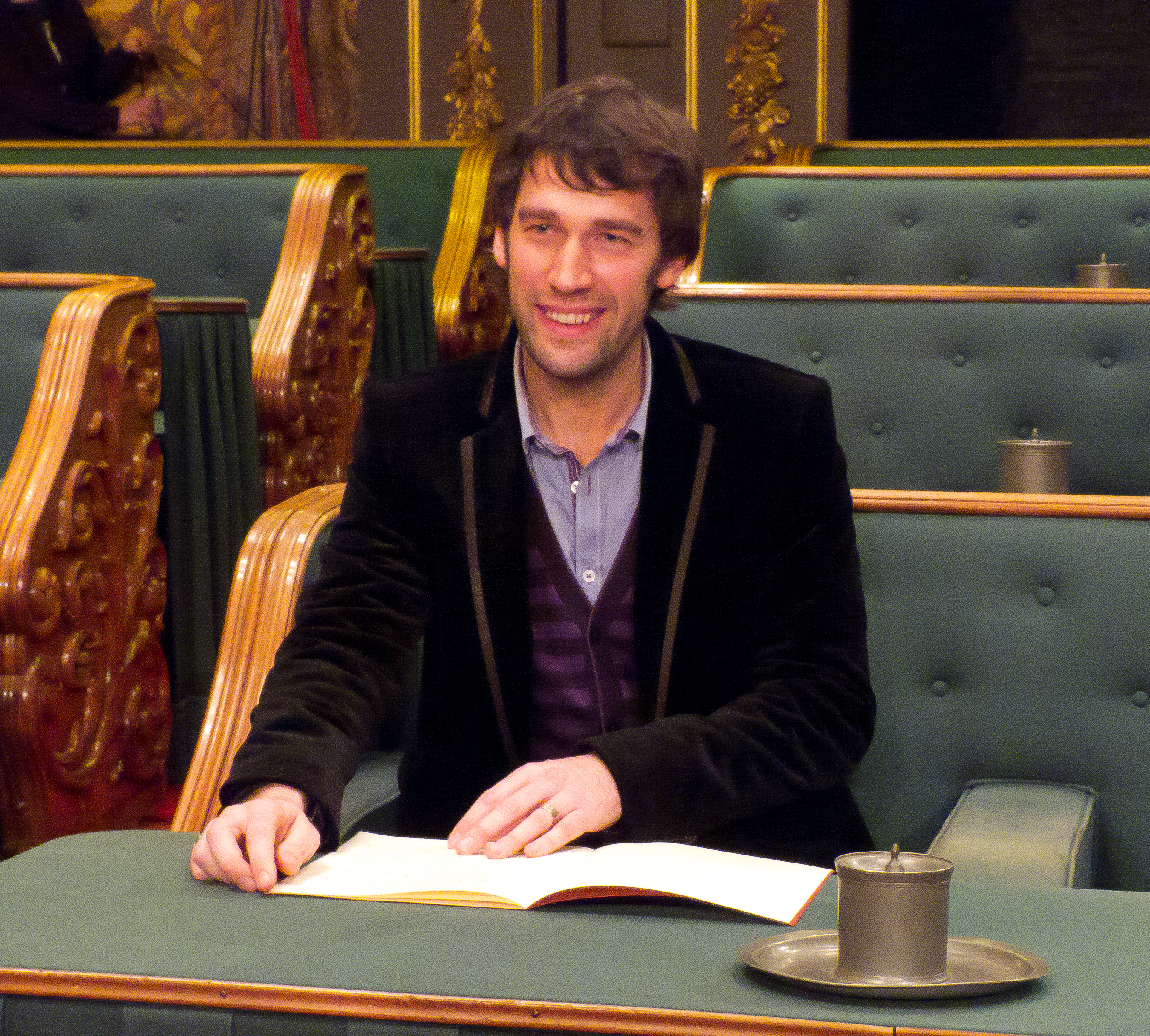Grand Dictation of the Dutch Language on:
[Wikipedia]
[Google]
[Amazon]
 The Grand Dictation of the
The Grand Dictation of the
 The Grand Dictation of the
The Grand Dictation of the Dutch Language
Dutch ( ) is a West Germanic language spoken by about 25 million people as a first language and 5 million as a second language. It is the third most widely spoken Germanic language
The Germanic languages are a branch of the Indo-Europea ...
( nl, Groot Dictee der Nederlandse Taal) was a televised spelling test A spelling test is an assessment of a person's (usually a student's) ability to spell words correctly. Spelling tests are usually given in school during language arts class, to see how well each student has learned the most recent spelling lesson. ...
for adults organized by the Belgian newspaper ''De Morgen
''De Morgen'' (Dutch for ''The Morning'') is a Flemish newspaper with a circulation of 53,860. The paper is published in Antwerp, Belgium.
History and profile
''De Morgen'' originates from a merger in 1978 of two socialist newspapers ' (meaning ...
'', the Dutch newspaper '' de Volkskrant'' and the Dutch public broadcaster NTR. In May 2017 it was announced no more dictations would be held due to the number of viewers strongly receding.
From its first edition in 1990 through its final one in 2016, the Grand Dictation was held annually in December. Starting 1991, it was televised on Dutch and Dutch-language Belgian television. The Dictation was presented and read by Dutch former anchorman Philip Freriks
Philip Freriks (born 27 July 1944) is a Dutch journalist, columnist and television presenter.
He is known for presenting the ''NOS Journaal
NOS Journaal is the umbrella name for the news broadcasts of the Dutch public broadcaster NOS on radio ...
. Since 2005 Freriks presented jointly with Belgian anchorwoman Martine Tanghe, except in 2011 when Tanghe was recovering from breast cancer.
The dictation took place in the plenary hall of the First Chamber
Bicameralism is a type of legislature, one divided into two separate assemblies, chambers, or houses, known as a bicameral legislature. Bicameralism is distinguished from unicameralism, in which all members deliberate and vote as a single grou ...
in The Hague
The Hague ( ; nl, Den Haag or ) is a city and municipality of the Netherlands, situated on the west coast facing the North Sea. The Hague is the country's administrative centre and its seat of government, and while the official capital o ...
. Each year there were about sixty participants: forty from the Netherlands
)
, anthem = ( en, "William of Nassau")
, image_map =
, map_caption =
, subdivision_type = Sovereign state
, subdivision_name = Kingdom of the Netherlands
, established_title = Before independence
, established_date = Spanish Netherl ...
and twenty from Belgium
Belgium, ; french: Belgique ; german: Belgien officially the Kingdom of Belgium, is a country in Northwestern Europe. The country is bordered by the Netherlands to the north, Germany to the east, Luxembourg to the southeast, France to th ...
. Half of each group consisted of invited prominent figures and half of members of the public, selected from a qualifying round in De Morgen and de Volkskrant.
From 2004 onwards, the text of the Dictation was written by prominent writers, including Jan Mulder and Remco Campert (2004), Herman Koch (2005), Martin Bril (2006), Jan Wolkers
Jan Hendrik Wolkers (26 October 1925 – 19 October 2007) was a Dutch author, sculptor and painter. Wolkers is considered by some to be one of the "Great Four" writers of post-World War II Dutch literature, alongside Willem Frederik Hermans, Ha ...
(2007), Kristien Hemmerechts (2008), Gerrit Komrij
Gerrit Jan Komrij (30 March 1944 – 5 July 2012) was a Dutch poet, novelist, translator, critic, polemic journalist and playwright. He rose to prominence in the early 1970s writing poetry that sharply contrasted with the free-form poetry of his ...
(2009), Tommy Wieringa
Tommy Wieringa (born 20 May 1967) is a Dutch writer.Tommy Wieringa
(2010), Arnon Grunberg (2011) and
(2010), Arnon Grunberg (2011) and
Adriaan van Dis
Adriaan van Dis (Bergen aan Zee, 16 December 1946) is a Dutch author. He debuted in 1983 with the novella ''Nathan Sid''. In 1995 his book ''Indische Duinen'' (''My Father's War''), which in its narrative is a follow up to his debut novella, wa ...
(2012).
The spelling rules adhered to were those of what is popularly known as the Green Booklet
The Word list of the Dutch language ( nl, Woordenlijst Nederlandse Taal ) is a spelling dictionary of the Dutch language (Dutch orthography). It is officially established by the Dutch Language Union (). Because of the colour of its published fo ...
. For words not mentioned in the Green Booklet, the Van Dale
''Van Dale's Great Dictionary of the Dutch Language'' ( nl, Van Dale Groot woordenboek van de Nederlandse taal ), called ' for short, is the leading dictionary of the Dutch language. The latest edition was published in April 2022.
History
Van ...
dictionary applied.
Out of the first 23 shows, fourteen were won by Flemish
Flemish (''Vlaams'') is a Low Franconian dialect cluster of the Dutch language. It is sometimes referred to as Flemish Dutch (), Belgian Dutch ( ), or Southern Dutch (). Flemish is native to Flanders, a historical region in northern Belgium; ...
and eleven by Dutch contestants. Once, in 2011, first place was shared between a Dutch and a Belgian contestant. The Belgian newscaster Freek Braeckman is the only invited prominent figure to have won. In 2011 the Walloon journalist Christophe Deborsu was the first French-speaking participant.
The 2015 and 2016 editions used a modified format: participants teamed up in pairs of one prominent and one non-prominent. In 2015 the Dutch team won, in 2016 the Flemish team.
References
{{Reflist Dutch language Spelling competitions Competitions in Belgium Competitions in the Netherlands 1991 establishments in the Netherlands 1991 establishments in Belgium Recurring events established in 1991